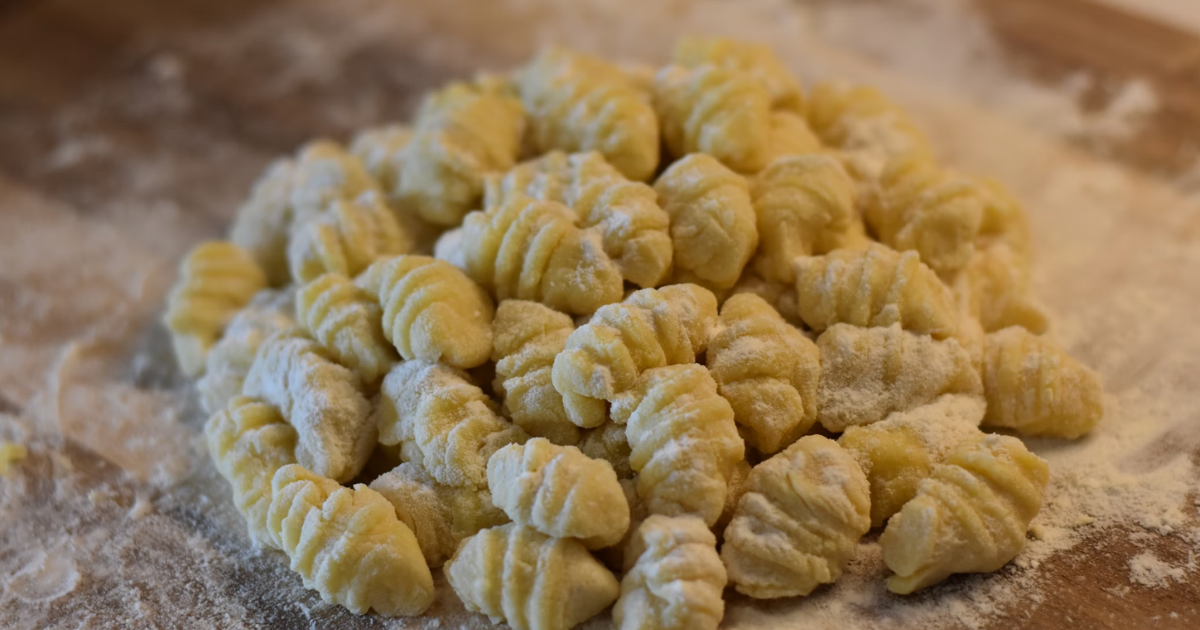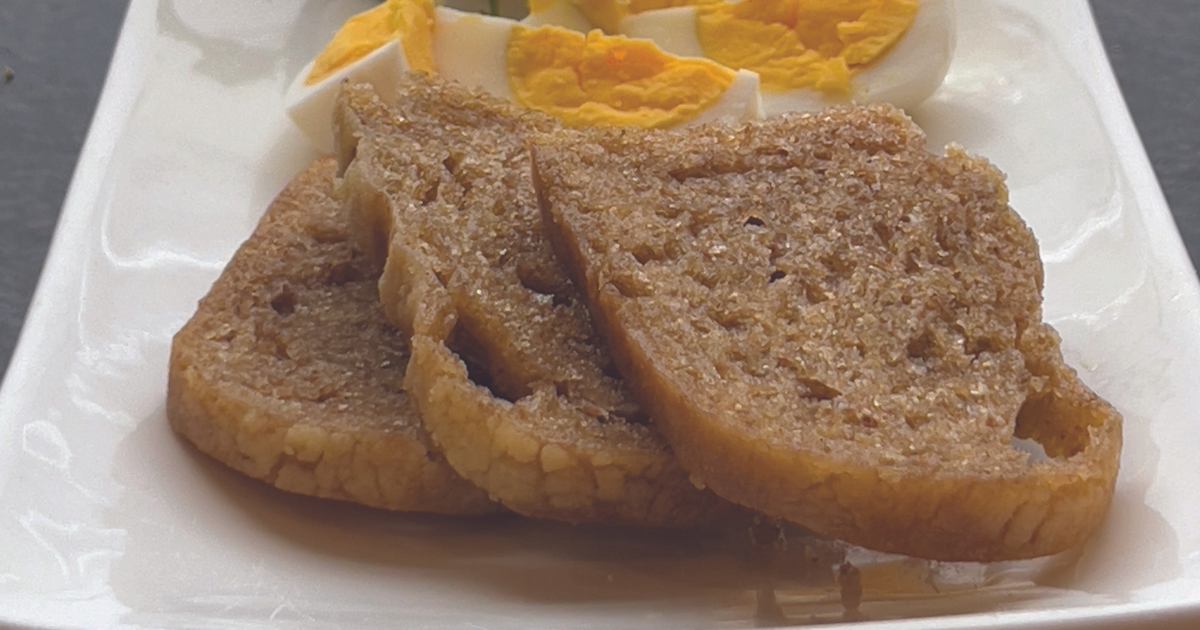Planting and harvesting according to the moon cycle can sound a little woo-woo, but if you ask the people behind Summerhill Pyramid Winery in Kelowna, British Columbia, and Southbrook Vineyards in Niagara-on-the-Lake, Ontario, it would seem that it’s the only practical thing to do.
“We strive to be a model of man in nature,” says Stephen Cipes, proprietor of Summerhill Pyramid Winery. “We have 80 acres overlooking the lake here in Kelowna. And we feel we are a model for the world to come in and see how we can live together in harmony with the earth and not only be sustainable, but also with biodynamic farming and permaculture, we’re giving back. It’s about replenishing the soil. We’re giving back to nature rather than just taking.”
“It leads to better winemaking and more attentive winemaking.”
Bill Redelmeier – Proprietor of Summerhill Pyramid Winery.
Stephen actually arrived in Kelowna from New York. He moved after learning from a friend that he could grow fruit and grapes in the Okanagan Valley. “I always wanted to grow grapes and make sparkling wine,” says Stephen. “And I discovered that the location here is ideal for growing small intensely flavoured grapes
that hold their flavour through the second fermentation in the bottle and produce sensational sparkling wine. I had always wanted a good reason to come to Canada, as it was the home of my mother’s mother, Esther, whose parents emigrated from Kyiv.”

So in 1986, Stephen moved his family to their newly acquired vineyard in Kelowna, including his wife, Wendy, and their four boys, Matthew, Gabe, Ezra and Ari, who are all active in the winery, especially Gabe, the director of biodynamics and permaculture for the site. For Stephen and his family, organic farming was a
priority right from the beginning. “The vineyard was being sprayed with Gramoxone, and I was suiting up to drive my tractor and I asked, ‘What is Gramoxone?’ And it turns out to be a deadly chemical. Then I pointed down at the lake and I asked, ‘Where do we get our drinking water from?’ And they pointed at the lake.
I thought, ‘The Gramoxone is going into the lake, and that’s the water we drink?’ I said, ‘We’re not gonna do this.’ So that was the first step, becoming organic right away. And then, the idea of biodynamics just fit in so beautifully because it’s the highest complement to organics. And I believe it’s the highest certification that you can get now, through Demeter.”
Passionate Growing
“The rule is, if you can’t taste the passion in the wine you’re drinking, you’re drinking the wrong wine,” says Bill Redelmeier, proprietor of Southbrook Vineyards. “To me, wine is the ultimate passion project. It’s about passion and pleasure and being distinctive.”

Passion is definitely a running theme for Southbrook — and not just for the wines, but for the land and the
people who grow it as well. “When we added a winery to our farm in the north of Toronto, we were purchasing all of our grapes. So we had much less input on what we could do. So when we purchased the
property in Niagara-on-the-Lake in 2005, it was with the intention of not only converting to organics because I don’t want to ask my workers to do stuff I don’t want to do — and I don’t wanna spray that — but also using biodynamics because it just plain makes better wine,” says Bill, who shares that Southbrook was
actually the first biodynamic winery in Canada, receiving their biodynamic certification in September 2008.
“It’s a change in attitude, because here in Ontario, particularly, but right across Canada, except for Alberta,
we’re dealing with liquor boards, and they’re promoting cheap, cheap, cheap. And one of the issues — whether it’s cheap wine, cheap food, cheap cars, cheap anything — they’re cheap because somebody’s not getting paid properly, whether it’s the earth or the workers. And so, with wine, the thing is, it’s a luxury product. If people are looking for a better experience, then they’re looking for higher-quality wines, which, whether they’re organic or biodynamic, will often be made by a small, passionate vineyard. To me, it’s all about supporting local, supporting small producers, supporting people that support your community,” says
Bill.
“In the wine business, we keep getting hammered. ‘You gotta get bigger. You gotta get bigger.’ And, you know, you might make a profit if you get bigger, so there’s always that pressure. But years ago, we realized
that was a bad idea. In other words, we don’t want to get any bigger. Instead, the idea is to make wines that you can sell to dedicated customers that are of better quality. So rather than saying, well, we can make cheaper wine and we can get it out the door, which is not a sustainable business practice, our plan is not to get bigger, but to get better and make better wine,” Bill says.
The Upside of Biodynamic Winemaking
“There’s always been a diehard biodynamic fan, especially amongst
wine nerds. But I think what’s really cool is that consumers who aren’t wine nerds, who just really enjoy
drinking wine — and, you know, Friday night is an excuse to open a really nice bottle — they’re really starting
to recognize and acknowledge just how unique and pretty biodynamic wines are. People have fallen in love
with that,” says Michael Alexander, Summerhill’s winemaker.

“The biggest thing is, biodynamic makes really cool wines, and it’s kind of a scorecard for how we do out in the vineyard. You know the old adage that great wine takes great grapes? Well, part of biodynamics is allowing those great grapes to shine through.
So the biodynamic program has really allowed us to focus on the vineyard and on the soil and on soil health and on compost. We spend a lot of time talking about decomposition and microorganism soil health. And so I
get to geek out really, really hard, and it’s really cool to know all the work that goes in and all that effort. And then what comes out is a beautiful bottle of wine that only comes from our vineyard. We talk a lot about terroir and that sense of place, well, there’s no truer way to show that sense of place than by producing biodynamically,” says Michael.
“Biodynamic wines are just more expressive. The quality is usually really good, and they have more texture,” says Casey Hogan, Southbrook’s winemaker. “Working as a sommelier, I tasted a lot of wines and I was always asking what wines were the most interesting. It always turned out to be wines that were produced biodynamically. So that’s what drew me here to Southbrook.”
Trial and Error
Although many are the benefits of biodynamic farming and wines, it does come with its share of challenges.
“With biodynamics, there is even less peer assistance available. Often you are plotting your own row. In Canada, the cold is both a plus and a minus. The winter will kill vines, but pests too,” says Bill.
“Biodynamic growing and winemaking require thought. Without a toolbox full of chemicals to fix problems, we have to think and take time to prevent problems,” he adds. “We have very few things in the vineyard that we can use to fix problems. And so what you try and do is figure out ways to prevent them in the first place. You’ve gotta be more careful because you can’t fix the problems as easily, so you have to prevent them.”

That cautious approach extends to the cellar. “We don’t have a lot of tools that conventional winemakers might have, that when there are problems, you can just add something and fix it,” says Casey. “So I’m a lot more attentive in the cellar. I’m tasting all the barrels very often and seeing what their pathway is like and trying to imagine where they’re going. And, you know, if there is a problem that I think might happen, I can prevent it early on.”
“It leads to better winemaking and more attentive winemaking,” adds Bill, “because you have to prevent the
problems rather than fix them. It just plain works.”
“It took us a few years to get it dialled in and truly figure it out,” says Michael. “2017 was really the first year that we produced commercial biodynamic wines, and since 2017 we’ve been able to grow the program. So, slowly over the last 7 years, we’ve really focused on our biodynamic program and worked really hard to dial it in and get it right out in the vineyards so that when we bring it into the cellar, things hopefully go as planned.”
He adds: “I think the biggest thing is learning when to wait and learning when to do something because everything is spontaneous ferment. We’re not allowed any inoculums with the biodynamic program. And
especially with something like Riesling, that’s really high in acid and has a really low pH, it takes a while for the natural microorganisms in our cellar to build up enough of a population to start fermenting. Sometimes that juice just sits for 7 days before we see any movement on the sugar levels. So I think the biggest part has just been learning when to wait and knowing not to worry about it. I always joke that every year my receding hairline goes back a little bit from all the stress of waiting for the wines to start fermenting. It really does require patience to make biodynamic wines, because they ferment when they want to ferment, not when I want them to ferment. Patience really is a virtue in this category.”
What Does Biodynamic Really Mean?
“Biodynamics is a holistic system where the farm relies on itself for its own nutrient design. It’s the only
available regenerative standard,” says Gabe. “So there are a lot of things in Demeter certification that aren’t
in organics. For one thing, if you’re Demeter certified, you have to make your own compost. We use certain
things according to a cosmic timing calendar. We preserve wild space and habitat. We protect our watersheds. Everything that contributes to theological balance contributes.”

“Biodynamics is certified by Demeter International. If it isn’t certified, it isn’t real. To be certified by Demeter, you have to show your organic certification. I used to say that biodynamics was organics on steroids, but that sends the wrong message,” says Bill. “To me, it’s a codified system. Basically, what Rudolf Steiner, who developed it in the 1920s, did is he took every old wives’ tale and put them together and codified them. One of my earliest memories was helping in my mother’s garden at three-and-a-half. My mother had an old retired farmer helping her in the garden. And I remember him telling me that his grandfather had told him that if you want the tops of plants, you’ll plant during a waxing moon. And if you want the roots — so potatoes and carrots — you plant in a waning moon. And that you’ll usually get your coldest time of the cycle on a full moon. And it worked. It works.”
“The sprays we use in the vineyards are mostly herbal teas. And you need animals — you need manure for fertility with biodynamics. It really should be your own animals rather than bringing in somebody else’s
problems as far as winemaking is concerned,” Bill says.
“And with regards to how I approach it in the cellar,” says Casey, “a lot of the biodynamics happens in the vineyard, but we do tend to try and work in the cellar when we’re blending on specific biodynamic days. We take the whole lunar calendar into consideration and plan accordingly in the cellar with that.”

“Biodynamics makes our winemaking toolbox smaller,” says Michael. “We don’t add any yeast, bacteria, nutrient or tannin. We allow the wines to start fermenting on their own and finish on their own. We have to trust that we got it right in the vineyard. It has taken me a few years to be able to sleep when the fruit comes in, but time has taught us the wine knows what is best.”
Paving the way for the future Not only does biodynamic growing create better-tasting wines, but it also encourages sustainable production and attitudes, says Bill. It can even counteract climate change, Stephen points out. “I read a statistic the other day that if all agricultural operations reverted to regenerative and organic practices, it would draw down much of the carbon that we produce in a year. It would be like an immediate switch, you know? If we just stopped, and started giving back, you can create so much more
abundance that way. It’s just…it’s a long game,” he says.
“I give Stephen and Summerhill full credit that from Day 1 the status quo wasn’t acceptable,” says Michael. “The idea that if we’re going to be lucky enough to grow grapes in the Okanagan, then we need to make sure we take care of the valley. We’re working hard to educate our neighbours and to work with our neighbours to become at least organic, if not biodynamic, because it is so important.”
“I think a big part of the biodynamics and the organics for us,” Michael explains, “is making sure we leave the soil better than we found it. We don’t make decisions without first thinking, ‘What does this mean a hundred years from now?’ This is a multigenerational farm. Stephen has grandkids and great-grandkids who are eventually going to take over the business. It’s really important to us that every decision we make leaves that soil and our farm better for the future than we found it. And we found that organics and biodynamics allow us to do that.”
“Biodynamics makes our winemaking toolbox smaller.”
Michael Alexander – Summerhill’s Winemaker
An editor with 15-plus years in the publishing business, Catalina Margulis’ byline spans travel, food, decor, parenting, fashion, beauty, health and business. When she’s not chasing after her three young children, she can be found painting her home, taming her garden and baking muffins.













